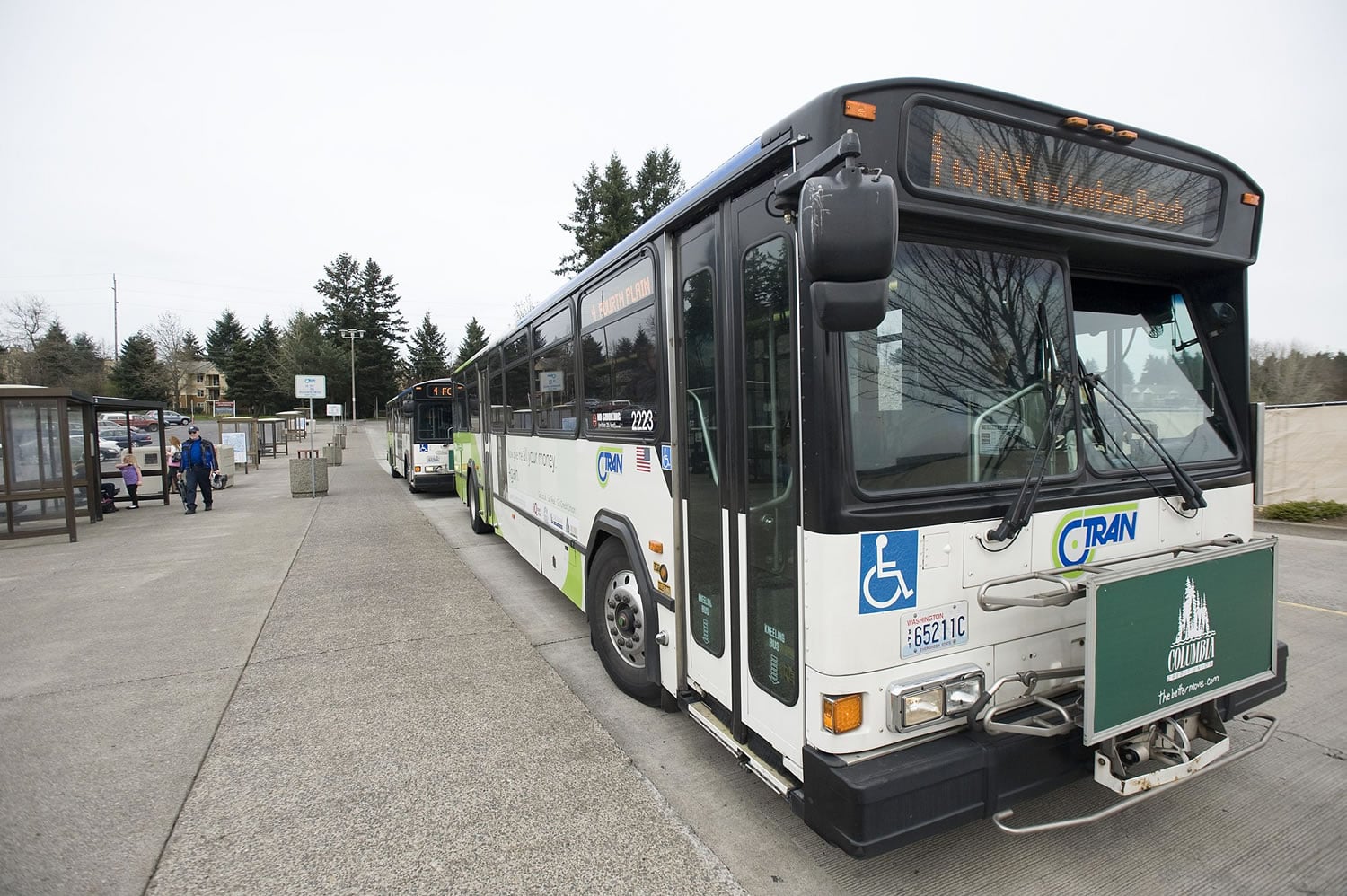As C-Tran prepares to shift gears on how to pay for operating light rail in Vancouver, agency leaders face a tight timeline if they hope to land their first choice on the fall ballot. They also face a board that has shown it’s not in full agreement on the best way forward.
Last week, the C-Tran directors reached a brief stalemate over a proposed sales tax measure that would cover the $2.57 million annual price tag of maintaining a light rail extension into Vancouver, planned as part of the Columbia River Crossing project. Most board members favored moving ahead with a vote as planned. The city of Vancouver’s three voices at the table favored holding off, instead exploring non-sales-tax options first.
Ultimately, the rest of the board agreed to go the latter route, with an emphasis still on a to-be-determined November ballot measure.
Most C-Tran directors have made it clear they want to see a measure put to voters this year, as the agency has long promised. So have many residents who lined up to speak during recent board meetings.
Regardless of intent, this month’s board action doesn’t set the vote in stone. The resolution directed the agency to look for light rail funding options that C-Tran “has the authority” to put on the Nov. 6 ballot, to its entire service district. The board has until July to commit to a November light rail vote. And it will need the city of Vancouver — which collectively holds veto power — on board to make it happen.
All that leaves an uncertainty that some C-Tran board members aren’t happy with. Clark County Commissioner Tom Mielke voted against the compromise, later saying he wasn’t pleased with how the meeting turned out. Battle Ground City Councilor Bill Ganley said he worries that voters are starting to feel like comic strip character Charlie Brown — running to kick the ever-elusive football, only to have it pulled away at the last second.
“I was just really disappointed,” Ganley said. “I thought it was time to go to voters.”
If the city of Vancouver wanted to change course from a sales tax, Ganley said, that should have happened a long time ago.
“That’s what frustrates me,” Ganley said, “is that I think they’ve had enough time.”
C-Tran will meet with Vancouver officials next week to explore light rail funding options, said Scott Patterson, C-Tran’s public affairs director. They’ll also consult with legal counsel to discuss what can and cannot be put to a public vote, he said.
Besides sales tax, the state’s high-capacity transit law allows for other funding avenues, Patterson said. Among those are an “employer tax” — essentially a business tax — and a sales and use tax on car rentals, he said. It’s unclear how either of those might figure into the conversation.
A few other ideas have already been floated, including a fare-based model that would draw revenue more directly from light rail users, or a vehicle license tax. Some have suggested paying for light rail with savings from elsewhere in C-Tran’s system once high-capacity systems are up and running. But that would require a change in C-Tran board policy, which now prohibits such a move.
Fares alone likely won’t cover the entire operation cost of light rail, Patterson said. Other light rail systems aren’t financed that way — “it’s just not practical,” he said — and Vancouver’s fares will still have to balance with the regional TriMet system into which it would connect. But that doesn’t mean fare revenues can’t be part of the solution, he said.
C-Tran may come back to its board with funding alternatives in May or June. Agency leaders have also suggested that new options could be evaluated by the state-appointed expert review panel now looking at Vancouver’s light rail and bus rapid transit plans.
“Our hope is to move as quickly and expeditiously as possible,” Patterson said.
Vancouver Mayor Tim Leavitt, among those pushing for the extra study, has said a sales tax measure is not off the table — if there’s no better option available.
Local leaders have been through a version of this process before. Patterson said agencies on the CRC looked at local funding scenarios as early as 2007. But that was before light rail operating cost estimates were available, and before the project’s preferred alternative was picked.
As C-Tran and Vancouver officials now take another look at their options for a November ballot measure, Leavitt said it’s too early to say what the outcome will be. The Vancouver City Council will decide how to proceed once it has the options on the table, he said.
Leavitt said he’d be open to a public vote even if it’s not required with whatever funding plan is chosen. He said all options should be considered.
“I believe that we’re working in earnest, diligently, to try to find something that we can put on the ballot in November,” Leavitt said.
Eric Florip: 360-735-4541; http://twitter.com/col_enviro; eric.florip@columbian.com.




